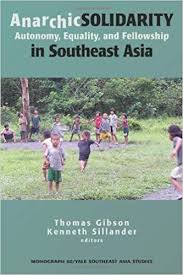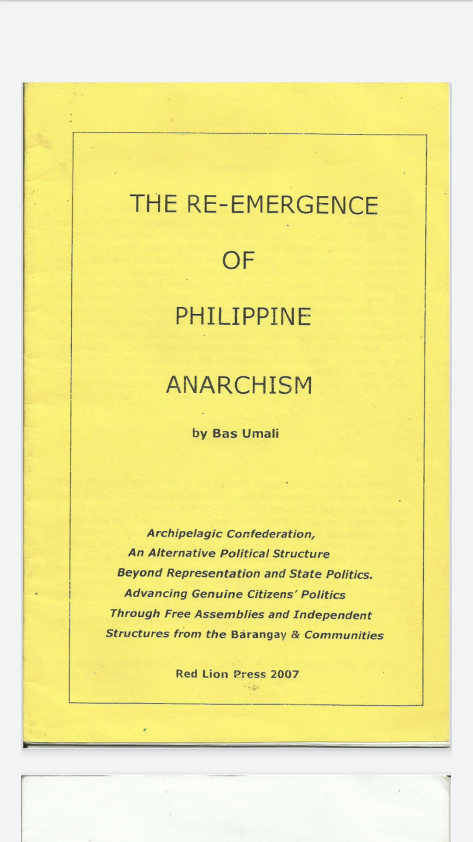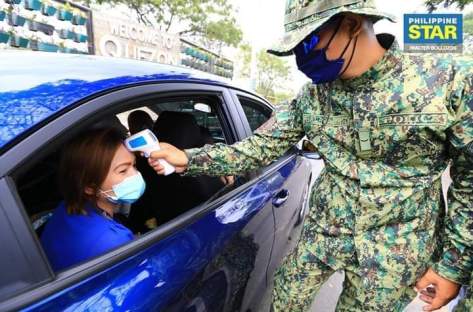Sa isang blog sa wordpress.com ay makikita ang isang akda. Pinamagatan itong Isang Marxistang Pagsusuri sa Anarkismo. Nais naming magpasalamat dahil naging pagkakataon ito para linawin ang ilang batayang pagkakaiba ng Anarkismo sa Marxismo. Ganunpaman kinulang ito dahil nagtunog leksyon sa Marxismo ang akda imbes na maging kritisimo o pagsusuri. Nakakalungkot na mapaghahalataan ang kakulangan ng may akda sa kaalaman ukol sa Anarkismo, at sa lokal at pandaigdigan nitong kasaysayan. Isinulat ang ang sanaysay na ito para dagdagan ang mga kakulangang ito. Iminumungkahi ang pagbasa nito sa mga may sinseridad na alamin ang tunay na kahulugan ng Anarkismo. Sa huling bahagi maglalatag din ng ilang sariling pagsusuri ukol sa Marxistang kaisipan.
Anarkismo. Nagmula ang salita sa wikang griyego na nangangahulugan ng kawalan ng namumuno o ruler. Ganunpaman hindi ito nangangahulugan ng kawalan ng kaayusan o order. Naniniwala ang mga Anarkista na kahit walang namumuno ay maaaring magkaroon ng kaayusan dahil ang bawat tao ay nais masiguro ang pansarili at pampamayanang kaligtasan.
Ilan sa mga isinusulong ng Anarkismo ay Kalayaan, Kapayapaan, at Pagkakapantay-pantay. Ang kalayaan para sa kanila ang paggawa ng iyong nais nang hindi nahahadlangan ang iba na gawin ang kanilang mga kailangan at nais gawin. Ang kapayapaan para sa kanila ay taliwas sa katahimikan. Ang kapayapaan na ito dala ng pagkaka-intindihan sa kapwa, sa paraang malinaw (transparent), at walang pamimilit o coersion. Ang pagkakapantay-pantay naman, na nagsasaalang-alang ng pagkakaiba o diversity, at nakabatay sa katotohanang ang mga istruktura ng hierarchy o saray ay artipisyal na itinayo.
Ang Anarkismo ay hindi tungkol sa kasapian o pagiging kasapi ng anumang grupo. Bagama’t hindi rin nito hinahadlangan ang sinuman na lumahok sa mga ganito basta’t hindi natatapakan ang mga pagpapahalagang nabanggit sa itaas. Mas naniniwala sila sa mga kasapiang may horizontal o pantay na pamunuan. Importante sa kanila ang consensus o pagsang-ayaon ng lahat at iniiwasan ang kompromisong dala ng majority wins.
Hindi pangunahin sa lahat ng mga Anarkista ang paglahok sa mga organisasyon, bagkus mas mahalaga sa kanila ang pagsasapraktika ng mga values. Maaari kang sumali sa mga organisasyong “Anarkista” ngunit manatiling mapang-abuso kapag nakatalikod na ang mga kasama. Maaaring napakagaling mong magsalita tungkol sa Anarkismo nguni’t pag-uwi sa bahay ay lumalabas ang iyong pagiging konsumerista at patriyarkal. Hindi ganito ang Anarkismo. Mas mahalaga sa mga Anarkista ang mga pagpapahalaga o values at prinsipyo higit sa kasapian.
Kaugnay nito, hindi tinitignan ng mga Anarkista kung deklarado ka bang Anarkista o hindi. Kapag nakita nilang isinasabuhay ng isang tao o komunidad ang mga prinsipyo ay sapat na iyon. Masasabing mula sa ibaba o bottom-up ang lapit o approach na ito. Sa pakiki-ugnay ng mga tao o komunidad na may parehong pagpapahalaga, nagkakaroon ng pagpapalagayang-loob na maaaring humantong sa mas malaking mga komunidad. Hindi palaging inaasinta ng mga Anarkista ang pagkakaroon ng malaking bilang, bagkus mas tuon nila ang kalidad ng pakikipag-ugnayan.
Kaugnay din nito, isang hindi natalakay sa “pagsusuri” na binanggit ay ang pag-inog o development ng Anarksimo sa paglipas ng siglo. Mas nagtuon ang may akda sa Anarkismo (may malaking titik A). Tumutukoy ito sa mga organisasyong nagdeklara ng Anarkismo at may kaugnayan sa International Congress noong 1800s, gaya ng Confederacion Nacional del Trabajadores (CNT) sa Espanya na sinasabing umabot ng tatlong milyon ang kasapian.
Hindi nagkaroon ng panahon ang may akda na talakayin ang anarkismo (may maliit na titik a). Tumutukoy naman ito sa mga tao o komunidad na nagsasapraktika ng anarkismo kahit hindi hayagang nagpapakilala bilang Anarkista. Sa ganitong depinisyon, maaari nating ipasok ang mga Zapatista ng Mexico (matatandaan na sa kasaysayan na nagwagi silang pasukuin ang estado ng Mexico ngunit hindi nila inagkin ang estado), at maraming katutubong pangkat na din na binaggit sa librong Anarchic Solidarity: Autonomy, Equality and Fellowship in South-East Asia nina Gibson at Sillander ng Yale Southeast Asia Studies.
Ganunpaman, mahalaga sa maraming anarkista na magdeklara bilang anarkista para linawin ang pagkakaiba nila sa mga komunista. Para sa kanila, mahalaga ang pagpaksyon ng mga anarkistang gaya ni Mikhail Bakunin sa Kongresong Internasyonal, para ipunto na hindi maaaring gamitin ang mga paraan at pagpapahalaga ng estado kung nais buwagin ang estado.
Mariin ang pagsalungat ng mga anarkista sa pahayag ng sumulat na, “Para buwagin ang estado, kailangang bumubo ng estado.” Hindi kailangang paglimian pa ang kabalintunaan nito. Una, paano masisigurong hindi magiging bagong elite ang mga nang-agaw sa kapangyarihan kung tinitignan nila ang kanilang mga sarili bilang mga “dalubhasa” at mas nakakaalam. Ano ang ang magiging kaibahan ito sa estadong nagpro-proklama na sila ang magpapa-unlad sa masa. Paanong mangyayari ang “withering of the state” na tinutukoy ni Marx sa huling yugto ng komunismo kung ang pinagbuhusan natin ng panahon ay ang pagsemento nito?

Sa Marxistang Pagsusuri sa Lipunan
Kaugnay nito, hindi naniniwala ang mga anarkista sa vanguardism. Pinanghahawakan ng mga anarkista na ang kapangyarihan, kapag naipon sa isang partido o tao ay nakalalason. Mas interesado sila sa pagpapakalat ng kapangyarihan kaysa sa pagmomonopolyo nito.
Hindi din sila naniniwala na ang kawalan ng estado ay nangangahulugan agad ng gulo o chaos. Dahil naniniwala sila sa kakayanan ng bawat indibidwal at komunidad na organisahin ang sarili. Iyon ay kung hindi ikakahon ang mga tao at pananatilihin silang mangmang.
Naniniwala ba kayo na kapag nawala ang estado ay papayag na lang ang mga komunidad na maghari ang gulo? Hindi, ang sagot ng mga anarkista. Makikita ito sa mga pandemya at iba pang kalamidad na kinaharap ng mga tao. Marami sa mga komunidad ay hindi naman talaga naaabot ng estado ngunit nagkakaroon ng tulungan ang mga tao at komunidad para manatiling buhay. Madalas, gumugulo pa kapag nanghimasok ang pamahalaan. Totoong may mga panggugulong nangyayari pero dala ito ng pagkasanay na maging depende sa estado. Kung hindi sila sinanay na maging pala-asa sa estado ay nananatili naman silang maayos sa gitna ng mga sakuna. Kahit ang mga lumpen na sinasabi ni Marx na mga walang pag-asa at di dapat pagkatiwalaan ay may pag-aarugang ipinapakita sa pamilya man o kaibigan.
Para sa mga Marxista, ang class o uri lang ang batayan ng silbi ng tao. Madalas naisasantabi ang ibang aspeto ng pagkatao sa pagsusuri ng isang Marxista. Katunayan nito ang maririnig sa mga “lider” o “dalubahasang proletaryo” sa paglalarawan sa ibang kasama bilang mga “manggagawa lang” o “masa lang”, na para bang ang kanilang pagiging “lider” ay itinalaga ng isang diyos.
Ang di pagkakapantay-pantay sa sahod sa pagitan ni Trabahador X at Y, para sa nagsulat ng “pagsusuri” ay tama lang dahil hindi naman pantay ang husay o oras ng pagtratrabaho ng dalawa. Pero kung anarkista ang titingin, maaari niyang itanong bakit mas mahusay o mas masipag ang isa kaysa sa isa. Maaari niyang tignan kung gusto ba talaga ng trabahador ang ginagawa niya, baka naman kasi hindi , kaya hindi niya ginagalingan o sinisipagan. Hindi ba’t bihasa dapat sa usapin ng alienation ang isang marxista?
Para sa isang anarkista, ang tao ay higit pa sa hayop na interasado lang sa self-preservation, na iginigiit ng may akda ng “pagsusuri”. Ang di pantay na pagkalinang ay produkto ng sistema ng pagkatuto, na kayang baguhin, hindi ng absolutong kategorya. Ang manggagawa ay tao, ang masa ay tao, na kayang mag-isip ng kung ano ang nais o makabubuti sa kanya, kung hindi lang siya ikakahon sa pinagmulang uri. Kaya, mas naniniwala sila sa consensus kaysa sa mga lider na kung madalas ay di na nararanasan ang suliranin ng mga mas “nakabababa” sa kanya sa saray o hirarkiya ng politika.
Isa pang halimbawa na magpapatunay sa pagiging kulong ng mga Marxista sa mga kahon ng uri ay ang pagsantabi sa mga argumentong hindi nila masagot. Hindi iilang “kasama” nila ang patatahimikin na lang sa pamamagitan ng mga salitang “burgis ka kasi, kasama, kaya di mo pa maintindihan” o “kulang ka pa sa ED kaya ka ganyan”.
Ang mas mahirap ay kung bansagan kang “kontra-rebolusyonaryo” kapag taliwas sa mga ideya ng partido ang iyong ipinapahayag. Mabuti kung hindi ka patayin. Tila yata kasi pinag-iisa ng mga marxista ang “rebolusyon” at “partido” na kapag tinuligsa ang partido ay katumbas na noon ang pagiging kontra-rebolusyonaryo. Nakalito ito dahil naniniwala umano ang mga marxista sa dialectics. Tila napakanipis ng linya ng pagiging kontra-rebolusyonaryo at pagiging anti-thesis. Sa huli’t huli, ang sentral na komite ng lehitimong partido ang makasasagot kung dapat ka na bang barilin at sagasaan ng tangke gaya ng ginawa sa mga nagproprotesta sa plaza ng Tianamen.
Para sa sumulat ng “pagsusuri”, walang tagumpay na mabibilang ang mga anakista sa kasaysayan. Pero mas mabuti na iyon kaysa magtagumpay at maging susunod na diktador pala gaya ng nangyari sa lahat ng “tagumpay” ng komunismo sa mga “eksperimento” nito. Trial and error, ang pagtatangol pa ng sumulat. Mabuti sana kung ang trial and error na ito ay hindi nangangahulugan ng libu-libong pagpatay.
Ganunpaman, nakakalungkot pa din dahil hindi pala itinuturing ng may akda na tagumpay ng anarkismo ang Mayday protest sa Chicago, na nagbunsod sa pagtamasa natin hanggang ngayon ng limitasyon sa walong oras ng pagtrabaho. Hindi din niya nakikitang tagumpay ang pagkakabuo ng unang unyon sa bansa, sa inisyatiba ni Isabelo Delos Reyes na nakahalubilo sa kulungan ng Montuich ang mga anarkista ng Cuba at Espanya, ayon na din sa pagkukwento ni William Henry Scott at Benedict Anderson.
Kung sa bagay, nakita na natin sa kasaysayan ang pagpigil ng mga komunista sa anarkismo. Halimbawa nga sa Spanish Revolution kung saan unang inokupa ng mga komunista ang mga gusali ng estado habang, tinauhan naman ng mga anarksita ang mga ospital, paaralan, at pagawaan ng makakain. Isa pang halimbawa ang rebolusyon na pinangunahan ni Nestor Makhno sa Ukrain na kinitil ng mga mapanlinlang na Soviet.
Totoo marahil na walang malinaw na metodo ang mga anarkista sa pagpapataob ng estado bukod sa pag-oorganisa sa indibidwal na lebel para maging obsoleto ang estado. Ito ay dahil, una, naniniwala sila na ang anumang rebolusyon ay walang silbi kung ipinapaubaya pa din ng indibidwal ang kanyang kapangyirahan sa iba. Pangalawa, dahil walang absolutong solusyon ang mga anarkista.
Para sa anarkista, hindi pwedeng hindi kasali sa pagtukoy ng desisyon ang mga taong maaapektuhan nito. Kaugnay nito ang diversity of tactics¸ na isinasaalang-alang ng mga anarkista. Walang isang sagot sa lahat ng bagay. Hindi ang tagalabas ang makakatukoy sa solusyong akma sa isang komunidad. Paanong may solusyon ang mga marxista sa suliranin ng milyon-milyon nang hindi inaalam ang kanilang mga saloobin sa makatao at hindi lang sa maka-uring paraan? Kung walang malaya, hindi mapanghamig, at impormadong consent o inisyatiba ng mga taong naaapektuhan?
And diversity of tactics na ito ang pinanghawakan ng mga anarkista para maging makahulugan ang kanilang mga aksyon gaano man ito kaliit o kalaki. Sa panahon ngayon, tila mas maraming mga anarkista ang nakahilig sa mga non-violent na mga aksyon. Ganunpaman, hindi pa rin nawawala ang ispirito ng propaganda by the deed na isa ring uri ng direktang aksyon. Kung kinakailangan ng pagkakataon, hindi mangingiwi ang ibang anarkista na sundan ang yapak ng mga anarkista noong 1800s na kumitil sa buhay ng hindi iilang diktador at monarko.
Ilan Pang Tanong sa Marxismo
Ang isang tanong na maaaring ilatag kung magtagumpay man ang Marxistang rebolusyon: Paano ituturing ang mga likas na yaman ng kapuluan? Alam natin na ang Marxismo ay umusbong mula sa isang industriyal na konteksto. Itutuloy lang ba, ang industriyalisasyon sa utos ng mga bagong namumuno, gayong alam na natin ngayon na may limitasyon ang ating likas ng mga pinagkukunan. Gagayahin ba nila undistriyal na “development” na isinulong ni Mao na nauwi sa pagkamatay ng milyon-milyon dahil sa pagkagutom? Kung ganito ang mangyayari, mas pipiliin pa namin ang Decisive Ecological Warfare ng ipinapanukala ng ilang deklarado at di deklaradong anarkista.
Isa pang tanong na maaaring itanong sa mga marxista kung magtagumpay man sila ay ang kapakanan ng mga katutubo, (na tinatawag nilang “pambansang minorya” sa mga kadahilanang di maiintindihan. Paano sila naging “pambansa” kung nariyan na sila bago pa magkaroon ng bansa, at paano sila naging minorya kung higit 10 milyon ang kanilang bilang?) Lalo’t sa panukala ni Marx, ang mga katutubo ay primitibo, at nasa unang epoch o yugto lang nga kanyang ebolusyon ng lipunan. Hindi ito katanggap-tanggap sa mga anarkista dahil ang ilan sa mga katutubong ito ang nagpapakita ng mataas na uri ng sosyalismo, ng pakikipagkapwa, ng kamalayang pangkalikasan, at ng anarksimo na din dahil sa kawalan nila ng awtokratikong o absolutong pamunuan. Pinaiinog nila ang ganitong mga kasanayan sa loob ng ilang libong taon hanggang sa modernong panahon. Kaya sino tayo para ilarawan sila bilang “primitibo”?
Kung dogmatismo naman ang pag-uusapan, kabalintunaang tila naging mga santo sina Marx, Engels, Mao at Lenin ng mga partidong makakaliwa. Samantala, wala tayong maririnig ng mga “Bacuninist”, “Proudhounist”, o “Kropotkinist” sa mga anarkista. Ang bawat isa sa anarkismo ay may ambag kahit o dahil wala silang “central committee”. Minsan pa, may nagtanong sa isang anarkista kung bakit may koleksyon siya ng mga librong pang-communist. Tumugon lang ang anarkista sa pagsasabing hindi siya komunista, kaya walang partido ang makapagsasabi kung alin ang mga librong maaari at di niya maaaring basahin. Kung tunay na naniniwala ang ang Marxista sa dialectics, bakit sila natatakot na mapalawak ng mga kasama ang kanilang kaalaman?
Sa loob ng mga dekada at mga siglo, lalong naging malinaw ang kaibhan ng anarkismo sa Marxismo. Sa paglipas din ng panahon, walang naging malinaw na tugon ang Marxismo sa mga kritisismong ito na ibinato sa kanila.
Pasasalamat at Mungkahi
Bilang pagtatapos, nais pa din naming pasalamatan ang sumulat ng “pagsusuri” dahil sa ayaw man niya o hindi, naitulak niya ang popularisasyon ng anarkismo. Maaaring ang nagtulak sa kanyang magsulat ay ang pagiging popular ng anarksimo sa US, sa panahong ito ng pagtuligsa sa racism doon, dulot ng pagkamatay ng African American na si George Floyd. Kinakitaan din ng anarkistang diwa ang okupasyon sa dating presinto ng Capitol Hills na naging isa ring komunidad. Partikular ang antifa movement sa nagiging popular na grupo ngayon, na binasagan pa ni Donald Trump na mga “terorista”.
Nakakapanghinayang lang ang kakulangan ng may akda ng datos sa lokal at internasyunal ukol sa anarksimo. Marahil naniwala siya sa artikulo ni Noel Barcelona na ipinasa sa Institute for Anarchist Studies na nagsasabing walang anarkismo dito sa lokal. Nakakalungkot ito lalo pa’t marami na ang nagsulat at nagsusulat ukol sa anarkismo dito sa lokal. Mayroon pa ngang mga unibersidad ng nag-alok ng mga klase at talakay tungkol dito. Hindi man lang rin nabanggit sa artikulo ang mga grupong Mutual Aid at Food Not Bombs na nagkalat ngayon sa kapuluan, mga grupong namamahagi ng pagkain, kagamitan, at impormasyon sa mga publiko. Sayang, dahil hindi yata naalala ng sumulat ang sinabi ni Mao na walang karapatang magsalita ang mga walang datos.
Para naman sa mga mambabasang nais pang mag-aral tungkol sa anarkismo, isang payo ang iiwan dito. Kung nais ninyong matutunan ang isang bagay, hanapin ang mga taong nagsasabuhay nito. Halimbawa, kung nais matutong magtanim, magtanong sa magsasaka at hindi sa doktor o hasyendero. Hindi din sapat na kumausap ng mga palabasa at mga teorista tungkol dito. Kung nais pag-aralan ang anarksimo, magtanong sa mga nagsasapraktika ng anarkismo at hindi sa mga katunggali nito gaya ng media, gobyerno at mga marxista. Makikita na din sa internet ang mga klasiko at modernong sulatin tungkol dito. Nariyan ang mga press gaya ng Crimethink, Black Rose, AK Press, Black Cat Press at websites gaya ng anarchistlibrary.org.
Hunyo 2020
SAFEHOUSE INFOSHOP
Link sa tinutugunang artikulo:
https://kritikph.wordpress.com/2020/06/01/isang-marxistang-pagsusuri-sa-anarkismo/







